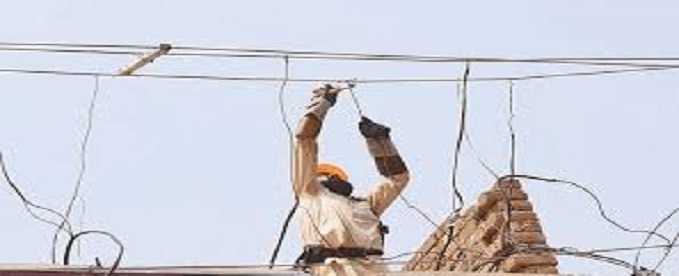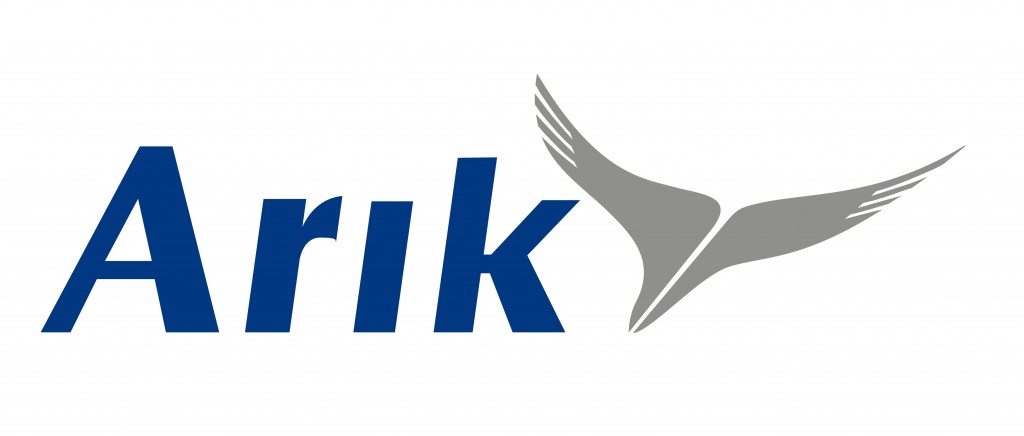News
Electricity Theft in Nigeria: Impact, Strategies and the Way Forward

By Okoko Chidozie Christian
chidochrisozonegold@yahoo.com; 09025179984.
Epileptic power supply has been a mainstay of Nigerian society and profoundly impacted communities, undermines the access of individuals to electricity and hampered economic growth.

And, a range of factors have been identified by stakeholders as the root causes including energy theft.
Electricity – essential part of our daily lives is used for powering our homes, offices, businesses and industries. Unfortunately, some people choose to illegally tap into it.
Illegal electricity connections, also known as “power theft” refers to the unauthorized tapping of electric from a power grid, often without the knowledge or approval of electricity providers.
According to source, electric theft is the criminal practice of stealing electric power, and it is nearly as old as electricity distribution.
Accomplished through a variety of means, from methods as rudimentary as direct hooking to a power line, to manipulation of computerized electrical meters endangering the environment.
For instance, if the power consumption in a region increases to a level where the average demand exceeds the rating of transformer or other electrical equipment due to power theft, then power quality problem like voltage collapse or transformer overloading may occur.
Frequent power cuts lead to deterioration in the customer-utility relationship. Illegal connections to the electricity network often transverse roads, fields, footpaths and present a safety risk for communities who must go about their normal daily activities into contacts with live cables and wires that have not been properly installed.
However, bypassing an electric meter co-located with fuses, circuit breakers, residual current earth leakage detection will often lead to risk of electrical faults and excessive use within the house may not be detected.
And, the supply will remain live within the house, increasing the risk of electrocution or fire. Cost of electricity is substantially compared with low income flow and credit constraints in most countries. For examples, more than 70% of Nigerians live on less than US2.0dollars per day. Yet, there is need to pay for the cost of power consumed.
So, it would appear illogical to conclude that residential consumers steal electricity thereby contributing to this loss.
According to the new Electricity Act, offenders to electric theft shall be subject to imprisonment for a term exceeding three years, a fine or both. If the load consumed or used or attempted consumption or use, does not exceed 10 kilowatts, the first conviction shall warrant a fine no less than three times the financial gain resulting from the electricity theft.
In Nigeria today, the Power Distribution Companies, DisCos face several challenges of electricity theft which remain one of the major causes of massive revenue losses thereby increases the debt profile in Nigeria Electricity Supply Industry, hence negatively impacting the nation’s economy.
Recently, Adetayo Adegbemle, executive director of Power Up Nigeria, expressed that the Senators are out of touch with the realities of the power sector and should seek advice from professionals and experts for accurate information. According to him, electricity is also not a public utility anymore, it is now a commodity.
Energy theft is an international problem and globally estimated in 2022 that consumers spent up to 1.4 billion pounds annually. This costs have to be passed to customers in the form of higher energy charges. The annual worldwide financial losses due to power or electricity theft are estimated to be around US 100billion dollars.
In a recent report by the Director of the Power Sector Advocacy Group in Nigeria; one (1) transmission company TCN, twenty-three(23) generation companies, GenCos and eleven (11) electricity distribution Companies, DisCos operates in Nigeria. Moreover, the plants are managed by generating companies (GenCos), independent power providers, and the Niger-Delta Holding Company.
Unfortunately, the twenty-three (23) power-generating plants connected to the national grid with the capacity to generate 11,165.4MWs of electricity has not been feasible. Despite having a capacity of 22,000 MWs, the country’s power generating peaked at 4,594.6 MWs as of November 2022 has been insufficient for the populace. So, the electricity generated is considerably low for over 200million people.
Although, some anti-theft products can help shield the network and consequently reduce power theft. Just like in United Kingdom, their electrification is made under subsurface about 100meters; not so easy for human to access, study confirms.
So, being a complex challenge, there are some ways to combat the illegalities of energy theft in Nigeria, but the consumers-utility relationship is a key determinant. Improvement of this relationship through local participation in development of renewable energy schemes such as rooftop solar photovoltaic, use of biomass and many more could bring benefit. Also, financing, redesigning of the distribution system and utility company codes and standards, competence in post-installation maintenance.
Strengthening of legal and regulatory framework particularly with larger users, and installing high security tampered-resistant metering systems for commercial consumers may have more effect.
News
UK Minister for Africa Visits Nigeria to Deepen Strategic Partnership

The United Kingdom’s Minister for Africa, Lord Collins of Highbury, has concluded a three-day visit to Nigeria, aimed at reinforcing the UK-Nigeria Strategic Partnership.

He reaffirmed the UK Government’s strong commitment to deepening trade and investment ties between the United Kingdom and Nigeria.
During his visit, Lord Collins met with senior Nigerian government officials, business leaders, civil society representatives and United Nations agencies.
These engagements underlined the UK’s long-term drive to support Nigeria’s prosperity and stability while deepening bilateral cooperation for transformative growth across our shared priorities.
A key highlight of the visit was Lord Collin’s bilateral meeting with Nigeria’s Minister of Foreign Affairs, Yusuf Tuggar, in which both parties reaffirmed their unwavering commitment to strengthening economic ties and promoting regional security. The Minister was joined by the UK’s Trade Envoy to Nigeria, Florence Eshalomi MP.
Lord Collins also met with Deputy Speaker of the House of Representatives, Hon. Benjamin Kalu, and discussions focused on opportunities to strengthen engagement between UK’s parliament and Nigeria’s National Assembly and the importance of furthering women’s participation in politics.
Speaking on his visit, the UK Government’s Minister for Africa, Lord Collins said: “Nigeria and the UK share a rich, ambitious relationship: one that is deeply rooted in respect.
“Our Strategic Partnership is at the forefront of this, and my visit has focused on how our countries can continue deepening our cooperation on key issues such as trade and investment to drive economic growth and deliver prosperity for us all.”
The Minister held discussions with United Nations representatives on the ongoing reform of the UN system, its implications for Nigeria and how the reform can effectively support those most in need, particularly in Northeast Nigeria, whilst also contributing to global humanitarian efforts.
Lord Collins also met with civil society leaders to discuss electoral integrity and governance reforms, reinforcing the UK’s commitment to democratic values and community empowerment.
He later visited Nigeria’s Anti-Kidnap Fusion Cell: a key security initiative supported by UK expertise through the National Crime Agency and the Integrated Security Fund, which plays a vital role in enhancing local safety and combating serious crime.
Also commenting on the visit, the British High Commissioner to Nigeria, Dr Richard Montgomery, said: “Driving growth is central to the UK’s foreign and development policy. Lord Collins’ visit to Nigeria underscores the UK’s unwavering commitment to deepening our shared prosperity through expanded trade and investment. We are proud to stand alongside Nigeria as it forges a resilient and dynamic economy.”
This visit underscores the UK’s enduring partnership with Nigeria – built on mutual respect, shared goals, and a vision for a prosperous future for both nations.
News
PalmPay Launches CSR Initiatives to Empower Women, Foster Financial Literacy in Northern Nigeria

In a strategic move to expand financial inclusion in Nigeria, leading mobile banking platform, PalmPay has launched a series of CSR programs across Kano and Kaduna. The CSR initiative named “Passing the Baton” represents the brand’s commitment to passing on knowledge and providing the resources individuals and businesses need to achieve financial independence and drive economic empowerment.

This initiative is a bold move by PalmPay to bridge the opportunity gap in the North by providing financial literacy training and micro-business branding support to 5,000 women-owned businesses in Kano and Kaduna. This strategic initiative reaffirms PalmPay’s commitment to inclusive development and economic empowerment, particularly in underserved regions.
“At PalmPay, we believe that real financial inclusion must be far reaching and cover the grassroots,” said Chika Nwosu, Managing Director of PalmPay. “Our new CSR program is focused on supporting gender equity by equipping women with the knowledge, tools, and visibility they need to thrive as entrepreneurs in their communities.”
Through this initiative, beneficiaries will receive free health insurance, hands-on training workshops, enhanced store branding to boost visibility, and branded merchandise to strengthen their business presence.
The initiative is part of PalmPay’s broader strategy to extend its innovative solutions, expand its footprint in Northern Nigeria, while building sustainable partnerships with local stakeholders for long-term impact.
In a show of support, His Royal Highness, the Emir of Kano, Dr. Muhammadu Sanusi II, has endorsed the initiative, calling on other stakeholders to join forces with PalmPay in ensuring the North benefits fully from the growing digital economy. PalmPay has received commendation from community stakeholders, as the initiative aims to serve as a model for similar projects across other northern states.
As PalmPay continues to scale across Nigeria, the company remains committed to bridging the financial inclusion gap and empowering underserved groups, particularly women and youth, through its innovative solutions and impact initiatives.
News
EFCC Witness Admits Writing Off Arik Air’s $2.3M Debt Amid N76Bn Fraud Trial



 Telecom2 days ago
Telecom2 days agoMTN Nigeria Invests ₦900Bn in 2025 to Boost Network Quality in Lagos & Abuja

 E-Business2 days ago
E-Business2 days agoFirm Reports a 48% Increase in Malicious Packages Threatening Software Supply Chains

 News2 days ago
News2 days agoEFCC Witness Admits Writing Off Arik Air’s $2.3M Debt Amid N76Bn Fraud Trial

 Telecom2 days ago
Telecom2 days agoMTN Nigeria Wins Award for Best Use of Data @MarkHack 4.0 Awards Night

 News2 days ago
News2 days agoSERAP Urges National Assembly to Reject Tinubu’s $24Bn Loan Request Over Debt Concerns

 E-Financial2 days ago
E-Financial2 days agoSenate Passes Harmonised Report on Tax Reform Bills

 Broadcasting2 days ago
Broadcasting2 days agoThe Rave Revolution: How Gen Z and EDM Are Rewriting Nigeria’s Nightlife

 News2 days ago
News2 days agoAnambra Shines in 2025 E-Governance Rankings, Setting National Standards


























